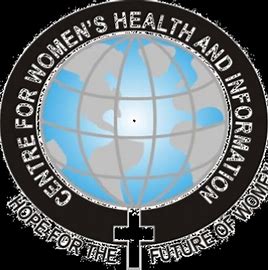|
A non governmental organisation (NGO), Centre for Women’s Health and Information (CEWHIN), in collaboration with Women’s Rights and Health Project (WRAHP) has pledged support for the elimination of Sexual and Gender-Based Violence (SGBV). The group also pledged to address challenges faced by women with disabilities, and youths exposed to various forms of discrimination, and their families, particularly in accessing quality essential services amidst prevalent issues of Violence Against Women and Girls (VAWG) and Harmful Practices (HP).
CEWHIN is supported by the United Nations Development Programme (UNDP) through the European Union (EU) and the United Nations (UN). Speaking at a town hall meeting in Idimu, Lagos, CEWHIN programmes officer, Pamela Stephens, said though both the male and female genders experience gender and sexual violence, it was more alarming for women, especially persons with disabilities. She said the meeting was aimed at raising awareness and sensitise the community about forms of discrimination faced by women with disabilities, as well as, provide information on how to access services. Speaking at the programme, Lagos State Coordinator, Child Protection Network (CPN), Aderonke Oyelakin, said there is quick response to cases of SGBV in the state. According to her, there are valuable insights into referral pathways and reportage procedures particularly through the National Human Rights Commission (NHRC). She emphasised the role of CPN in providing essential reporting services within the community. Executive Director, Women’s Rights and Health Project (WRAHP), Bose Ironsi, who shared a comprehensive overview of SGBV, said: “Members of the community have the power and they need to know their roles and responsibilities.” She said SGBV happens within a family and when unattended to spreads to other families. “The spread is caused majorly by injustice in the home, lack of trust, imposition of opinion, ethnicity, culture and belief system. “WRAHP in its past 12 years in Alimosho, Lagos, had handled several cases of SGBV, but there is a need to reemphasise its role. “In terms of the police responsibilities, they are constantly trained to ensure they understand the implications of going against the law, what is needed are people who will stand to ensure that justice is served. No individual, NGO can stand alone, the social structures and the community are needed to work together on the issue of SBGV. There is still hope,” she said Coordinator, Child Protection Network for Alimosho Local Council, Reverend Gabriel Oyediji, said: “This programme is to create awareness because most of the community members are still unaware of SBGV.” A participant at the meeting, Adijat Adebowale Kareemat, shared how the NGO has helped her in handling cases of SBGV, which has reduced cases of domestic violence in the area. Source: Vanguard
0 Comments
Leave a Reply. |
